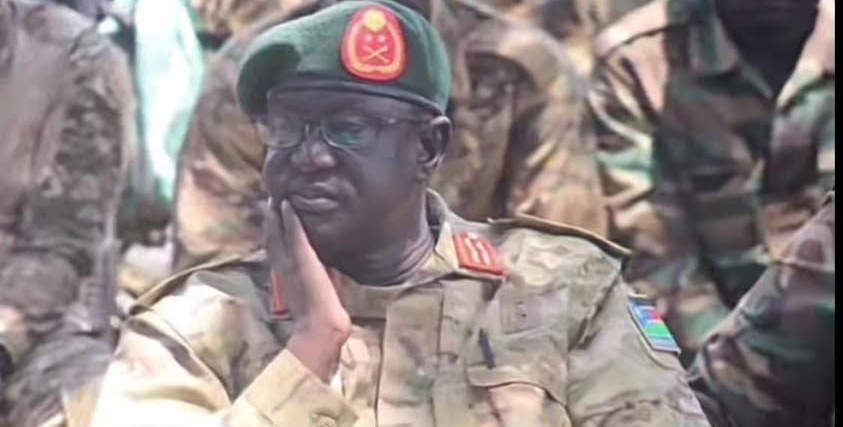
Civil society leader Edmund Yakani has stepped into one of South Sudan’s most sensitive debates, the detention of former Internal Security Bureau chief Gen. Akol Koor Kuc, adding both moral weight and a civic lens to a growing chorus of voices calling for his release.
Yakani, who heads the Community Empowerment for Progress Organization (CEPO), said his appeal aligns with President Salva Kiir Mayardit’s 2025 message of forgiveness and reconciliation.
But beyond sympathy, his intervention exposes deeper questions about the rule of law, political forgiveness, and whether the country’s justice system treats all citizens equally.
“Reconciliation cannot be selective. If the President calls for national forgiveness, then Gen. Akol should also be given his freedom like any other citizen,” Yakani said.
For Yakani, the issue is not simply about one man’s detention, it’s about the credibility of South Sudan’s reconciliation process.
By invoking principles of fairness and non-discrimination, he placed the conversation within a broader civic framework: how justice is applied, and to whom.
His comments follow similar appeals from Tonj youth groups and cultural figures like singer Small Engine (George Guot Mayen), who described Akol’s year-long detention as inconsistent with the spirit of peace and unity President Kiir has championed.
Tonj youth leaders framed their call around compassion and cohesion, urging the President to act “in the interest of peace and justice.”
Their tone, loyal yet pleading, reflected both deference to Kiir’s leadership and frustration with a system many view as opaque in its handling of security officials.
Small Engine’s public message carried the emotional weight of grassroots sentiment.
“Gen. Akol Koor was violently arrested and placed under house arrest nearly a year ago. His detention raises questions about rule of law and accountability,” he wrote.
Yakani’s decision to echo those voices marked a significant intersection between civil society advocacy and grassroots pressure.
While youth groups framed their calls in cultural and communal terms, Yakani rooted his argument in constitutionalism, warning that arbitrary detentions and silencing dissent risk fueling public resentment and eroding trust in the state.
“When citizens feel their freedom of expression is controlled by the state, they begin to see the state as their first enemy,” he cautioned.
Many note that Yakani’s intervention subtly reframes the debate: from a political plea to a test of governance ethics.
His emphasis on due process and equal treatment suggests that reconciliation cannot thrive without legal fairness.
“If Gen. Akol Koor is in conflict with the law, let due process take its course. But we must treat all citizens equally, without selective justice,” Yakani said.
As South Sudan navigates its fragile transition from conflict to stability, the case has become a symbolic battleground for competing visions of justice, one rooted in loyalty and forgiveness, the other in law and accountability.
Yakani’s entry into the discussion gives the movement a new dimension: a call not just to release a former spy chief, but to confront the uneasy balance between reconciliation and rule of law, a balance that may well define South Sudan’s political maturity in the years ahead.

